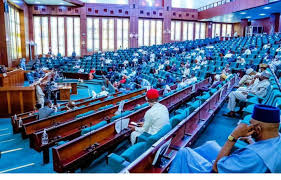House of Representatives has launched an in-depth investigation into the management and disbursement of over N1.3 trillion in agricultural intervention funds under the Central Bank of Nigeria’s Anchor Borrowers Programme, the Nigeria Incentive-Based Risk Sharing System for Agricultural Lending (NIRSAL), and the Bank of Industry (BOI).
At an investigative hearing on Tuesday,June 17th, Hon. Chike Okafor, Chairman of the House Committee on Nutrition and Food Security, expressed deep concerns about the opacity surrounding disbursement by the 24 participating financial institutions (PFIs) under the Anchor Borrowers scheme. According to Okafor, only nine of these institutions have provided verifiable information to lawmakers, despite the vast scale of funding and the Committee’s outreach efforts.
The probe centers on three key disbursements: N1.12 trillion reportedly loaned to 4.67 million farmers under the Anchor Borrowers Programme; N215 billion disbursed by NIRSAL for agricultural businesses; and N3 billion disbursed by BOI to 22,120 smallholder farmers through the Agriculture Value Chain Financing Programme.
“Our mandate is clear,” Okafor stated. “We are investigating how these intervention programmes were implemented, how public funds were allocated, and whether the intended impact on food security and nutrition has been achieved.”
In response, Charles Bassey of NIRSAL Microfinance Bank cited widespread insecurity, banditry, and natural disasters such as flooding and drought as key challenges that hindered loan repayment and project success. He noted that in several cases, beneficiaries had sought restructuring due to the inability to access their farms.
Sterling Bank’s Head of Agric Finance and Solid Minerals, Olushola Obikanye, informed the Committee that his institution had returned over N113 billion to the Central Bank, effectively clearing its balance under the scheme. “Sterling Bank has an outstanding of zero naira,” he emphasized.
The investigation is expected to extend into the records of each PFI, and may lead to legislative reforms or sanctions if mismanagement is discovered.



